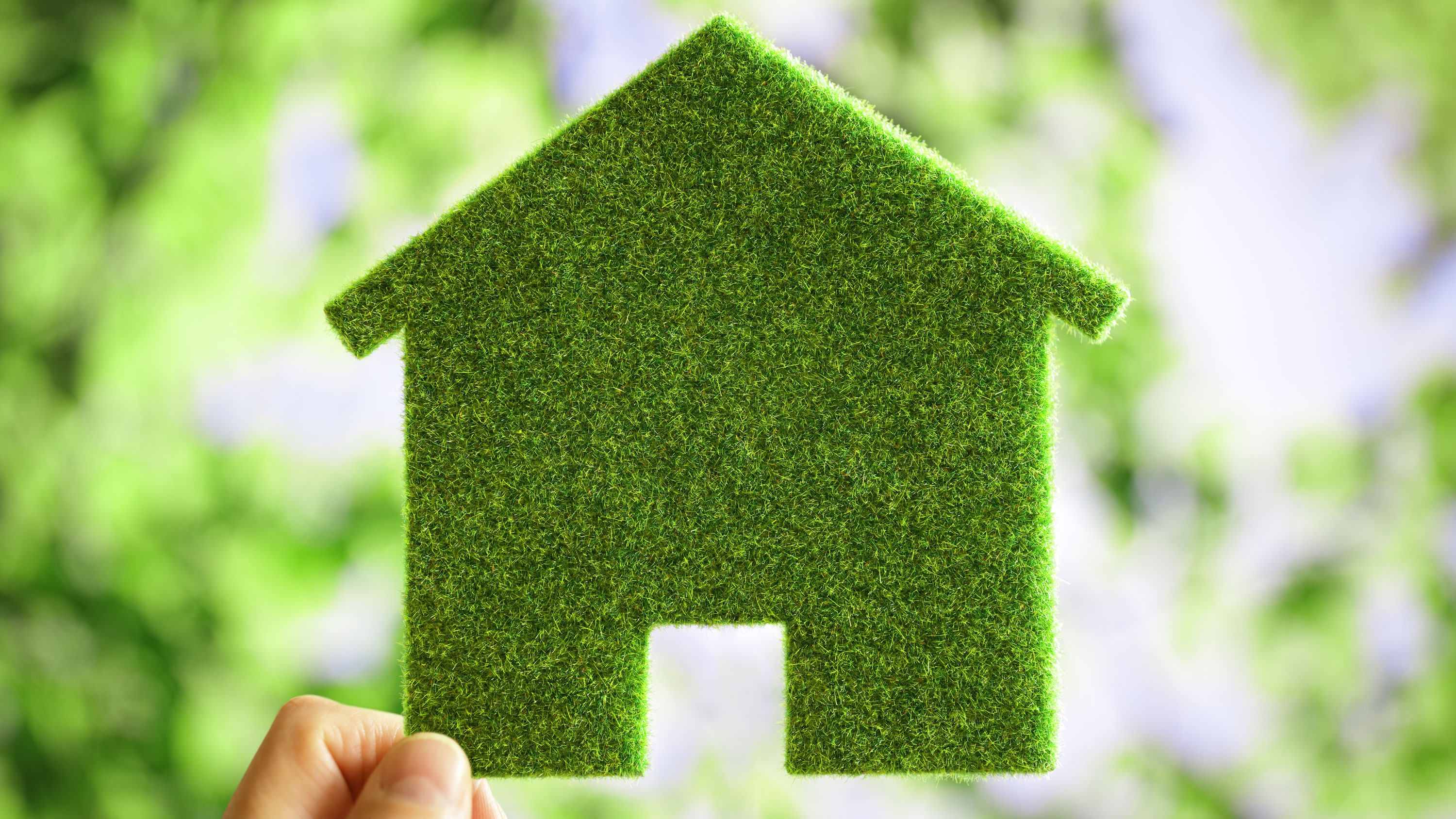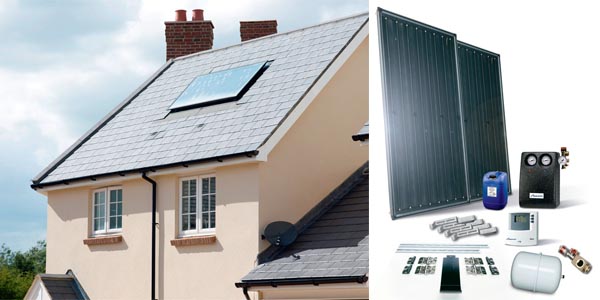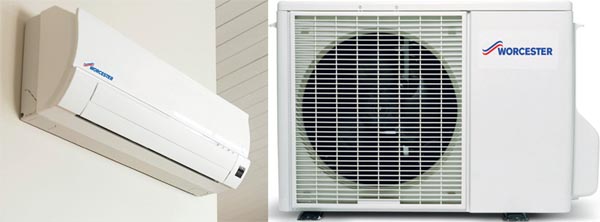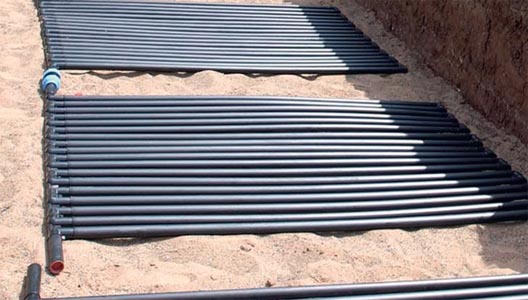Can an eco heating system save you money?
We explain the benefits of eco heating systems and how they can save you money. We look at solar heating, air source heat pumps and wood-fuelled heating systems

Eco heating systems are the future – and they can save you money on bills over time. While any new heating system is an initial financial system, low- or zero-carbon heating is worth it if you're planning on staying in your current home for a good while. And, there's no better year than 2020 to go for eco heating, because it's being subsidised by the government's Green Homes Grant (more on that further down in the article),
Here are the eco heating options available to you, their typical costs, advantages, and drawbacks. Get all the info you need about solar water heating, air source pumps, ground source pumps, and biomass boilers. If you're installing eco heating as part of a total house renovation, read our guide.
Solar water heating
What it is
Solar water heating, as its name suggests, uses heat from the sun to warm hot water in your home. The system will heat your house throughout the year, although you may need to use additional energy sources during the winter months. Generally, solar water heating will generate around 60 per cent of your home's hot water every year. Easy to install, solar water heating uses a special kind of solar panel, or flat plate collectors, which are fitted to the roof. The water that they heat will need to be stored in a large cylinder fitted with a solar heating coil.
How much does it cost?
Depending on the type of property you have, solar water heating will cost between £4,000 and £6,000 to install. The good news is, maintenance costs are minimal, so there real savings to made on annual energy bills in future.
Is it right for my home?
Get small space home decor ideas, celeb inspiration, DIY tips and more, straight to your inbox!
Solar water heating works particularly well in homes that aren't connected to mains gas supply. You don't have to have masses of roof space, as the thermal collector panels can be fitted on to a wall – just make sure it gets plenty of sunlight. You will also need to consider if you have the space for a large water cylinder. You'll also need to check that your boiler is compatible with solar heating – as a rule of thumb, if you have a hot water tank, then it probably is.

Air source heat pumps
What it is
Air source heat pumps convert energy from the air. The mechanism is simple: an outside fan draws air into a fluid, which then passes through a container that raises the fluid's temperature – heat that then gets distributed through the home's heating system. Although it is not completely impact-free, requiring electricity to run, an air source heat pump is up to five times more efficient than a traditional gas central heating system. This type of heating is especially efficient when working at a consistently low temperature, making them ideal for underfloor heating. A variant if an air source pump is an air-to-air pump that operates by circulating air between fans.
How much does it cost?
An air-to-water unit will cost you on average £8,000 to install, but the costs can be as low as £6,000 in a flat or as much as £15,000 for a large detached house. An air-to-air unit is considerably cheaper at around £2,000, but it's unlikely to generate enough heat to provide you with hot water. An air source heating system will save you around £500 a year in energy depending on your supplier.
Is it right for my home?
This heating system will work best in a home that doesn't have mains gas; because of the lower water temperatures it needs, it will give best results if you are primarily using underfloor heating, rather than radiators. And, crucially, if you are thinking of installing an air source heat pump, ensure your home is well-insulated first to maximise efficiency.

Ground source heat pumps
What it is
Ground source heat pumps utilise the energy stored in the earth and are fitted under ground in your garden. They can be laid either horizontally at a depth of around 1.5m or vertically in a deep borehole if you have limited land available. Like air source heat pumps, this heating system uses electricity – it delivers the energy it collects from the earth to your hot water tank. The good news is that, at the depth the pipes are installed, the temperature remains pretty constant, so you can use this heating system throughout the year. Ground source heating should be able to provide you with all of your energy needs, including hot water.
How much does it cost?
Ground source heating will cost around £13,000 to install – more expensive and labour-intensive than air source heat pumps, but also more efficient. Costs for a large detached property will be significantly higher, up to 35,000. Energy savings can add up to £600 per year depending on your fuel.
Is it right for my home?
Like air source heating systems, a ground source heat pump will perform best in a well-insulated home. You will notice that your radiators will be cooler to the touch than when using traditional central heating; on the up side, though, this lower heat will be delivered over a much longer period of time. As with all the other alternative heating systems we've covered, ground source heating is not the best option for replacing mains gas; it will, however, work very well for replacing an electric heating system.

Wood-fuelled heating systems
What it is
Wood-fuelled heating systems, or biomass heating systems, use a biomass boiler with your central heating system and are similar to conventional boilers. They are popular, since they can be connected to an existing system, eliminating the need to complex pipe installation.
How much does it cost?
An automatically fed wood pellet boiler will cost around £12,000 including installation; manually fed boilers will come cheaper. It will save you around £600 a year.
Is it right for my home?
The main consideration with installing a biomass boiler is space, as they tend to be larger than regular boilers. There are, however, smaller, freestanding models that will suit a smaller property.
The Green Homes Grant
From October 2020 until 31 march 2021, any new installation of a low-carbon heating system is being subsidised by the government Green Homes Grant incentive, up to two-thirds of the cost of the project, for the maximum the total sum of £5,000, or £10,000 covering the total cost if you are low-income. Find out more about eligibility and how to apply in our guide to the Green Homes Grant.
Read more:
- The ultimate guide to heating your home
- How to save money with an eco-friendly home
- PassivHaus - how to meet eco standards when renovating
Anna is a professional writer with many years of experience. She has a passion for contemporary home decor and gardening. She covers a range of topics, from practical advice to interior and garden design.